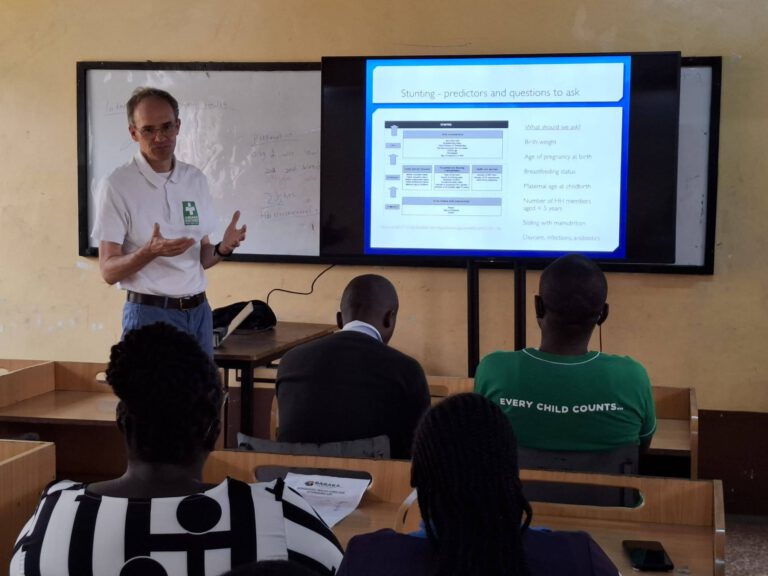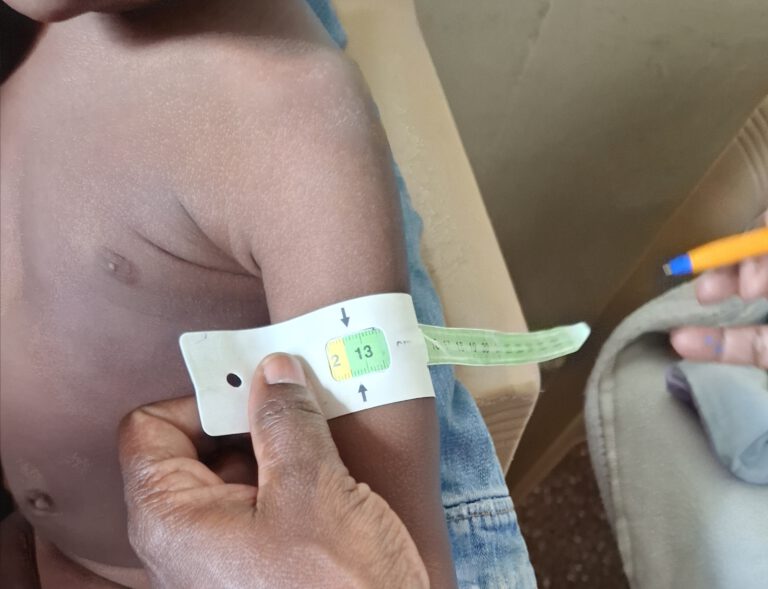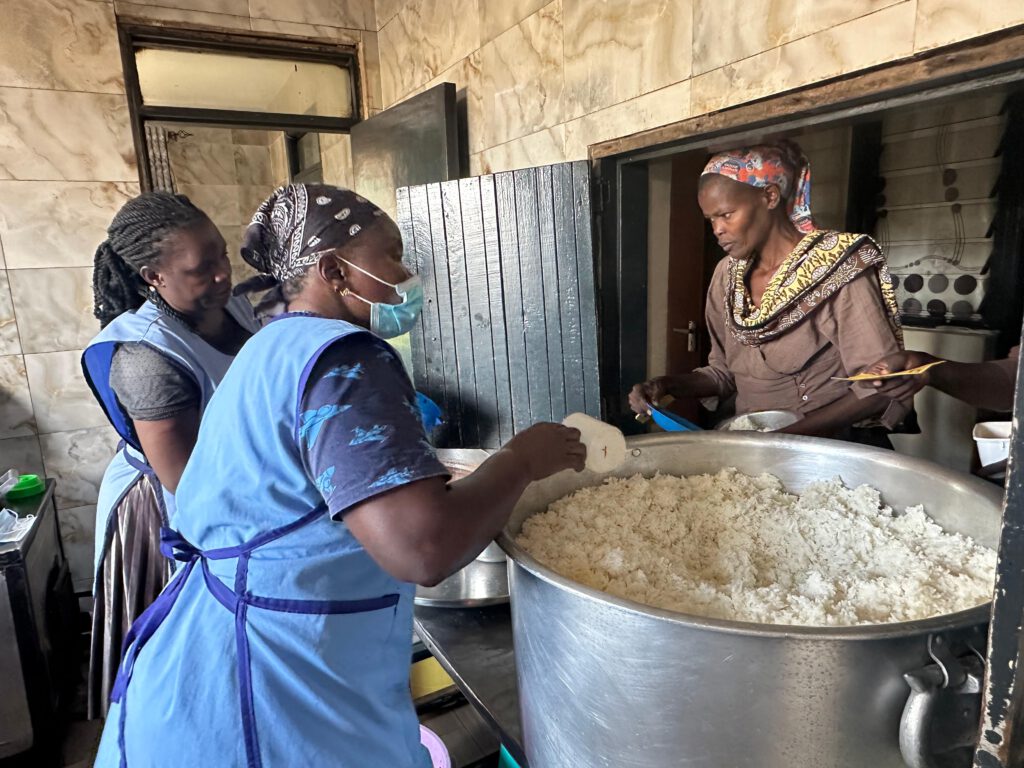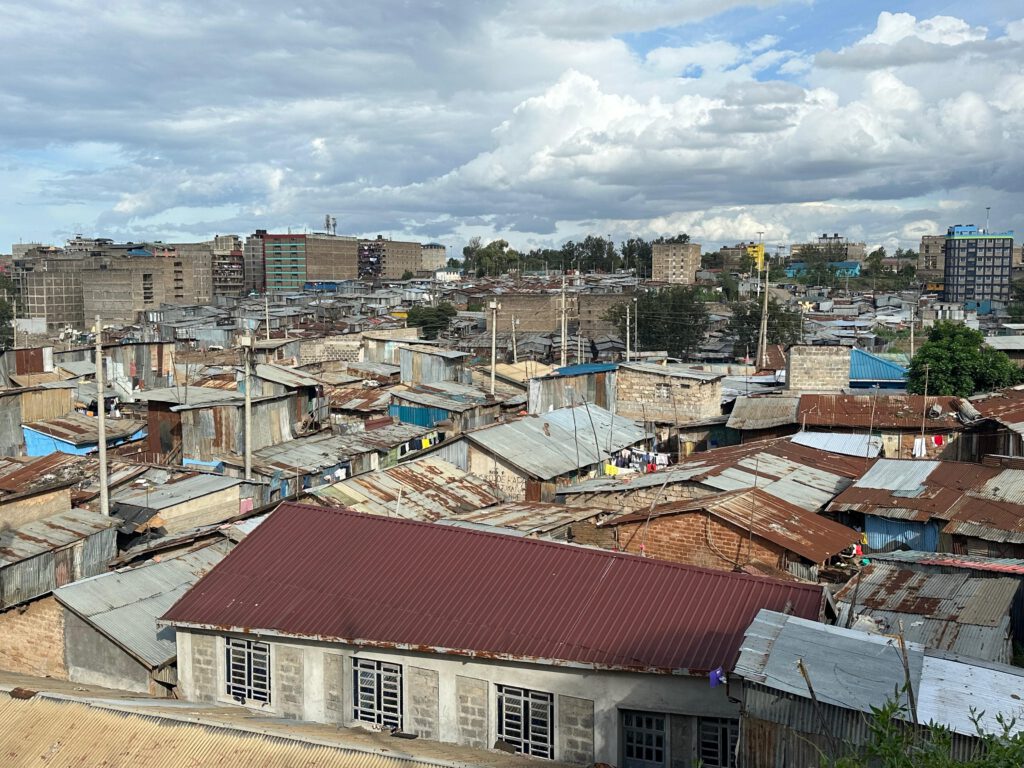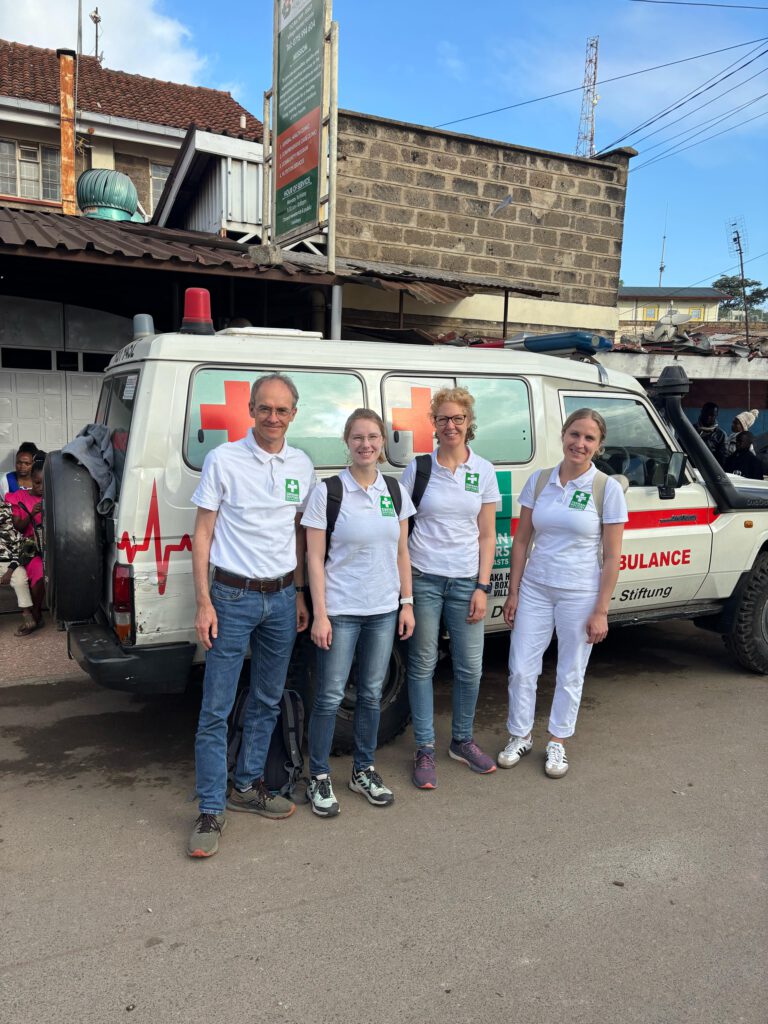My experience in Kenya
My six-week assignment with the German Doctors in Nairobi was both a personal and professional challenge.
I worked at the Baraka Health Center, located in one of the city’s largest slums. Every day, about 500 patients are treated there. Alongside general consultations, the center focuses on tuberculosis, sickle cell disease, and HIV. More than 50 staff members – health workers, nurses, volunteers, and a coordinating physician – provide care, while the German Doctors support the project both financially and by sending dedicated volunteer medical specialists to care for the community.
Most of my work involved treating children and adolescents. While many presented with common childhood illnesses, about one in five cases was more serious – malaria, pneumonia, epilepsy, severe diarrheal diseases, and above all, malnutrition. Particularly striking was stunting, growth retardation caused by chronic undernutrition. To address this, I conducted training sessions for staff to raise awareness and strengthen early detection. The first 1,000 days after conception are critical for healthy cognitive development, and fortunately, the center runs a small but well-functioning nutrition clinic that provides essential support.
Still, the situation in the slums remains difficult. Diets consist mainly of corn, rice, and beans, with very little meat, fish, or vegetables. Unsurprisingly, many children and adults are malnourished. It was distressing to see such unequal opportunities for children’s development. For many families, the recent introduction of school fees has placed education further out of reach, deepening the struggles they already face in providing both nourishment and learning for their children.
One of the most moving experiences was visiting some of the poorest families in the slum with a social worker. I saw the harsh conditions they endure but also witnessed touching stories of solidarity – a grandmother with cancer raising her orphaned grandchildren, or neighbors caring for an elderly woman disabled by polio.
Working in Nairobi meant adapting to different medical realities, limited resources, and cultural nuances in the doctor–patient relationship. Despite these challenges, I was struck by the resilience, kindness, and openness of the families I met. My experiences changed my perspective on humanitarian aid and reminded me how vital long-term support and the strengthening of local structures are.
Thank you for your interest in this journey.
If you have any questions or would like to know more about the work of German Doctors e.V., feel free to reach out or visit their official website.
